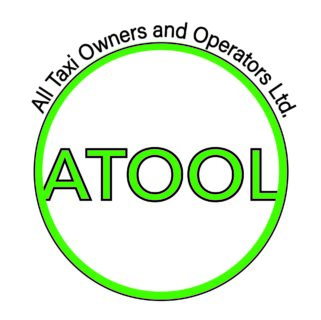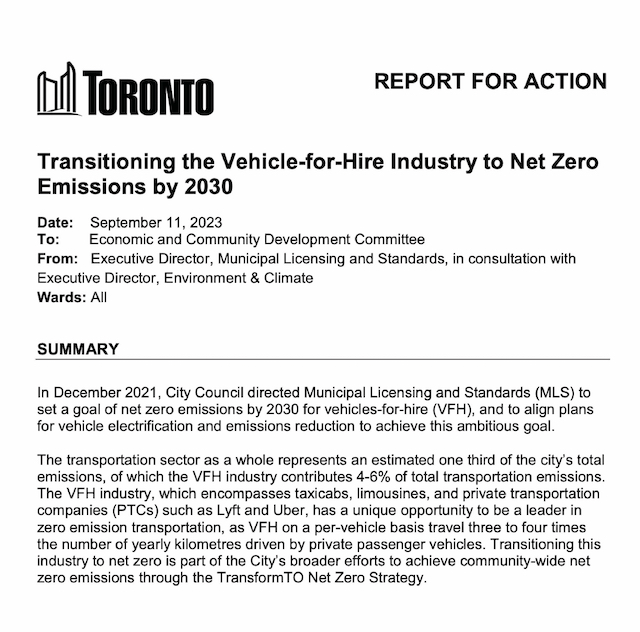Transitioning the Vehicle-for-Hire Industry to Net Zero Emissions by 2030
The report titled “Transitioning the Vehicle-for-Hire Industry to Net Zero Emissions by 2030” outlines a strategy for achieving the goal of net zero emissions within Toronto’s vehicle-for-hire (VFH) industry by 2030, as mandated by the City Council in 2021. This ambitious objective aligns with broader citywide efforts to achieve net zero emissions.
The proposed approach includes several key measures:
- Requiring VFH to be zero-emission vehicles (ZEVs) by 2030.
- Providing temporary fee reductions for early VFH adopters of ZEVs.
- Supporting the expansion of electric vehicle charging infrastructure.
- Granting operational flexibility by waiving vehicle age limits for ZEVs.
- Allowing plug-in hybrid electric vehicles (PHEVs) to operate as VFH until 2032.
- Extending the lifespan of VFH vehicles due for replacement in 2023 by one year.
- Offering education on the advantages and cost-effectiveness of ZEV ownership.
Equity considerations are a central focus, recognizing the diversity of individuals within the VFH industry. Achieving the net zero goal by 2030 requires financial investment and a collaborative, all-of-government approach with various stakeholders.
Continuous monitoring and reporting on infrastructure development, ZEV availability, and market trends are essential to ensure the feasibility of this ambitious goal.
The report was prepared in consultation with multiple City departments, including Environment & Climate, Transportation Services, Policy, Planning, Finance and Administration, and Legal Services.
The Council’s directive for the Vehicle-for-Hire (VFH) industry to achieve net-zero emissions by 2030 is indeed an ambitious goal. To meet this target and electrify vehicles while reducing emissions, the City recognizes the need for a financial investment. Importantly, this transition must also consider equity concerns.
Municipal Licensing and Standards (MLS) will continually monitor challenges related to vehicle supply, costs, and the availability of charging infrastructure. They will assess equity impacts and market trends, engaging with industry stakeholders and City partners throughout the process. Regular reports will be provided on identified challenges, progress on proposed supports (including licensing fee reductions), and overall advancements toward the net-zero goal for VFH leading up to 2030.
In 2024, MLS plans to conduct a comprehensive review of VFH regulations, offering an opportunity to further assess VFH licensing fees.
It’s acknowledged that the recommended approach in this report is just the initial step toward transitioning the VFH industry to net-zero emissions by 2030. Success will depend on collaborative efforts across the City and its partners to effectively support the goal of a net-zero VFH industry.
https://www.toronto.ca/legdocs/mmis/2023/ec/bgrd/backgroundfile-239119.pdf

